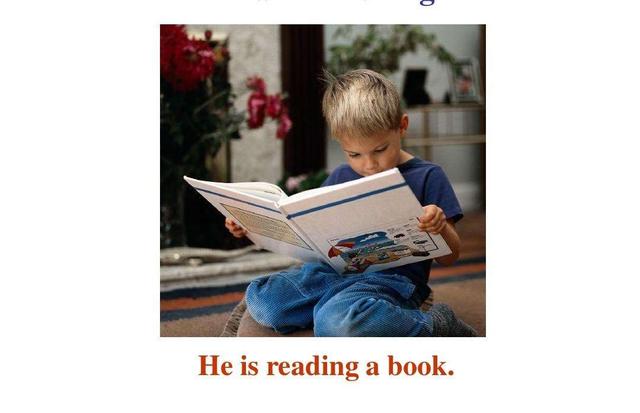原文源自British Short Stories of Today,作者Steve Walker是英格兰北部的一个年轻诗人。
I thought it was a mouse at first, and wasn't bothered. Living in a place like this, one must expect the odd mouse. True: it whinnied(whinny/ˈwɪni/马嘶叫声) in the night and woke me up more than once. I climbed out of bed pulled back the curtains and looked through sleepy eyes at the closed warehouse over the road. I thought the whinnies came from there. True, also: it clip-clopped behind the skirting-board(踢脚线), just like a horse would if horses were small. But I didn't think of that. I took it to be a heavy-footed rodent(/ˈrəʊd(ə)nt/啮齿动物).

一开始我以为是老鼠,也没在意。住在这样的地方,一定会遇到奇怪的老鼠。真的,它在夜里呜呜叫,不止一次把我吵醒。我爬下床,拉开窗帘,睡眼惺忪地看着马路对面紧闭的仓库。我以为呜呜声是从那里来的。确实如此,它在踢脚板后面咔嗒作响,就像马很小的时候那样。但我没想到这一点。我以为它是一只笨重的啮齿动物。

I first saw it one Sunday tea-time -- the most miserable time of the week for me; I turn off the TV to avoid the religious programmes and, left with nothing to do, I become miserable: always do. I was buttering some bread when I heard horses’ noises. I glanced. Wow! There it was, hoofing the lino(亚麻油地毡) by the larder(储藏室,食物室) door. A small horse! No larger, indeed, than an underfed(营养不良的,没吃饱的) mouse - ribs showing, eyes popping. I watched it carefully, stood still with bread in one hand and knife with a scoop(一勺) of butter on it in the other. Yes, it was certainly, most definitely, a horse, a small horse.

我第一次看到它是在一个星期天用茶点的时候——那是我一周中最痛苦的时候,为了不看宗教节目,我关掉了电视,闲下来无事可做,我变得很痛苦,总是这样。我正在给面包涂黄油,突然听到马的叫声。我瞥了一眼。哇!它就在那儿,踩着储藏室门边的地毯。一匹小马!事实上,不比一只吃不饱的老鼠大——露出肋骨,瞪大眼睛。我仔细地看着它,静静地站着,一只手拿着面包,另一只手拿着沾着一勺黄油的小刀。是的,那肯定是一匹马,一匹小马。

I must say, I've always been the same, ever since I passed twenty. I used to be a songwriter then, or thought I was, but all my songs had been turned down and I was at breaking point. Nothing whatsoever had gone right for me. I'd recently started my present job, and told a salesman I worked with about my problem.
我得说,自从我二十岁以后,我一直都是一样的。我曾经是一个词曲作者,或者自认为是,但我所有的歌都被拒绝了,我处于崩溃的边缘。我什么都不顺心。我最近刚开始我现在的工作,我把我的问题告诉跟我一起工作的销售员。

“Give it up,’ he jeered(嘲笑,戏弄) at me. You've got a good job here. Give it up. You'll never make it.’
“放弃吧,”他嘲笑我。你在这里有一份好工作。放弃吧。你不会成功的。”
What he really meant was: You're an ordinary bloke(家伙,小子), like me. You've no business thinking you're a songwriter. People like us aren't songwriters.
他真正的意思是:你和我一样,是个普通人。你没资格认为自己是个词曲作者。像我们这样的人不是词曲作者。

He was correct, of course. I followed his advice, but note now that ever since, it seems to me, I've avoided people and things that could be judged as being out of the ordinary. So what was I to do when confronted with the crisis of having a small horse infesting(骚扰,出没) my flat? I needed advice, but only knew ordinary people. I told one or two and they said: Come on, man - stop pulling our leg(戏弄某人,开某人玩笑). And they proceeded to avoid me for the next few days.